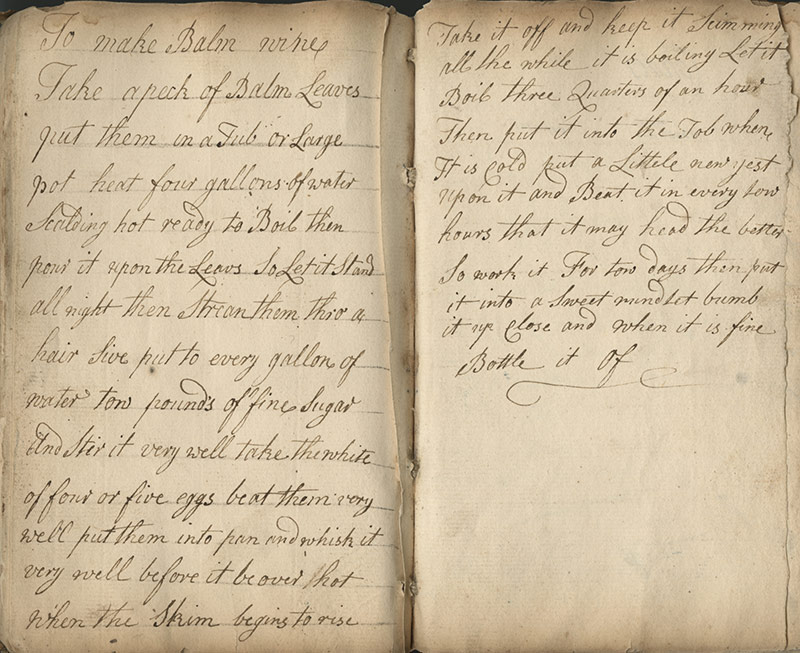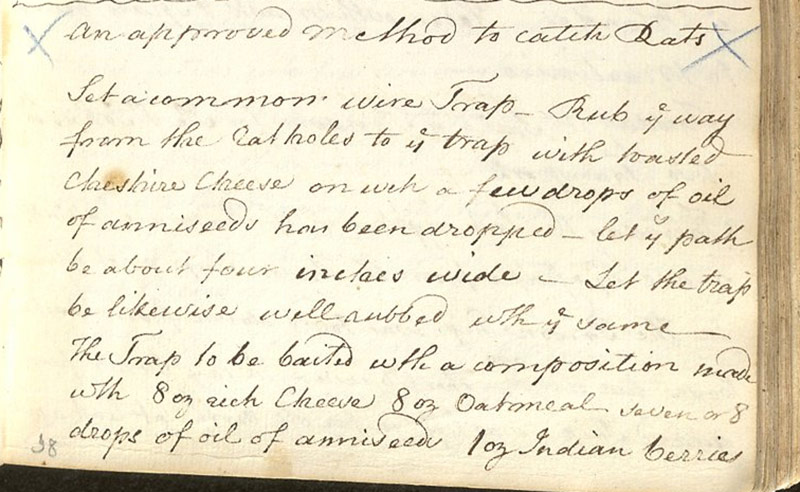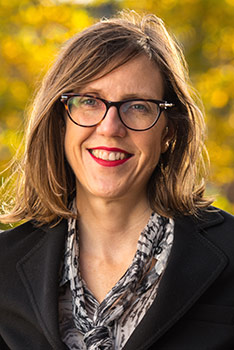Early Modern Maritime Recipes Database features instructions for making wine, catching rats and curing cancer
Author: UNB Newsroom
Posted on May 13, 2019
Category: UNB Fredericton

A professor at the University of New Brunswick wants to change the way people think about historical Maritime recipes – and teach them how to catch a rat.
“In the Settler society of the eighteenth-century Maritimes, recipes were used for all kinds of things, including food and drinks, but also medicines, household items like shoe polish, and construction and agricultural products like paint and fertilizer,” says Dr. Edith Snook, a professor in the UNB Fredericton department of English. “People had to figure out how to live – not just what to eat, but how to stay dry, get well, grow food and build and maintain houses. Recipes helped with all of that.”
Dr. Snook and Dr. Lyn Bennett, associate professor of English at Dalhousie University, and their team of student research assistants dug through reams of archival material to find recipes that were written in the Maritimes before 1800. They have made them available to the public online at the Early Modern Maritime Recipes database. This new searchable database contains more than 500 recipes that are housed in the region’s archives and includes images, transcriptions, explanatory notes and essays.
“The project began when I was researching women’s seventeenth-century recipe collections in England and I started to wonder about the recipe culture of the Maritimes, where I live,” says Dr. Snook, who directed the database project with Dr. Bennett.
Among the recipes in the database are directions for how to make parmesan cheese, purify sea salt, catch a rat, and construct a watch-coat for soldiers, along with a handful of documents detailing how to cure cancer.

Recipes found so far in archives are largely the work of English-speaking men, but there is one booklet of French recipes and a few recipes in German and Latin. A small number of recipes belonged to English-speaking women. The recipes were printed in the region’s newspapers and also survive in handwritten documents such as diaries, letters and notebooks.
 Dr. Snook says that recipes were a way to bring knowledge from the American states, Europe and other parts of the world to the region. Future plans for the database involve digging into the details of the recipes, including thinking about how Indigenous, Acadian and Black Loyalist knowledge is a hidden and unacknowledged part of the English Settler recipe culture.
Dr. Snook says that recipes were a way to bring knowledge from the American states, Europe and other parts of the world to the region. Future plans for the database involve digging into the details of the recipes, including thinking about how Indigenous, Acadian and Black Loyalist knowledge is a hidden and unacknowledged part of the English Settler recipe culture.
Dr. Bennett and Dr. Snook also want to find out where the one notebook of French-language recipes came from and investigate the particulars of what the recipes have to say about the histories of food, medicine and science in the Maritimes.
The project was funded by the Social Sciences and Humanities Research Council of Canada, with further funding from UNB’s Harriet Irving Library and the faculty of arts and social sciences at Dalhousie University. The database was developed in collaboration with the Centre for Digital Scholarship in the Harriet Irving Library. Dr. Snook and Dr. Bennett were assisted in their research by student research assistants from both universities and archivists and librarians from across the region.
The team hopes that others will use this valuable resource to learn more about the knowledge cultures and social history of our region. Dr. Snook and Dr. Bennett also plan to organize a conference around the recipe collection in the next year.
“The number of pre-1800 recipes we found has been a great surprise. We look forward to finding more as our research continues,” says Dr. Snook.
Media contact: Angie Deveau
Photos credit: Dr. Edith Snook: Joy Cummings/UNB; Wine recipe: Mount Allison University Archives – Trueman family notebooks; How to catch a rat: UNB Archives & Special Collections – Winslow Family Fonds.
